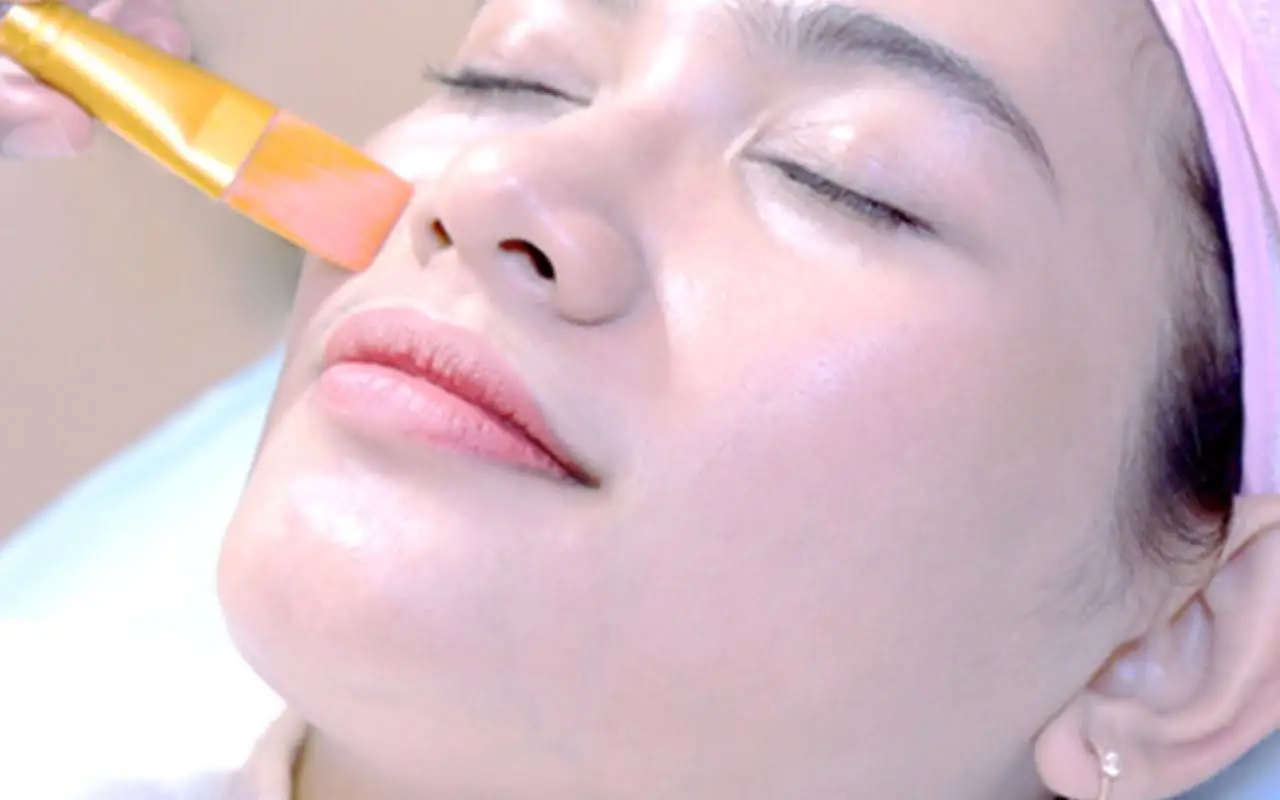Exfoliation: Understand the Benefits and How to Use It
Author: Nulook ExpertiseReview by: -How do you achieve radiant and glowing skin that many people desire? The answer lies in one of the best-kept secrets of skincare: exfoliation. Exfoliation is an essential foundation to ensure your skin stays fresh, healthy, and bright.
In the process, there are several things Beauties need to know first, such as the benefits, how to do it, and the side effects of facial exfoliation, especially if you are trying it for the first time. Without further ado, let's dive into the article below to learn more about exfoliation!
What Is Exfoliation and Why Is It Important for the Skin?
Exfoliation is the process of removing dead skin cells from the skin's surface. This procedure is an important step in a skincare routine that helps keep the skin healthy and glowing. So why does facial skin need regular exfoliation?
Every day, your skin naturally produces new cells and sheds dead ones. However, sometimes these dead skin cells can accumulate on the skin's surface, making it look dull and dry. This is why exfoliation is crucial; it helps remove the buildup of dead skin cells, speeds up the regeneration of new skin cells, and keeps the skin fresh and glowing.
The recommended frequency of exfoliation varies depending on skin type. For normal to dry skin, exfoliating once or twice a week may be sufficient. However, for oily or acne-prone skin, you may need to exfoliate more often, perhaps 2-3 times a week. It is important to remember that Beauties do not need to exfoliate too often, as this can cause irritation and dryness.
There are two main types of exfoliation: physical and chemical. Physical exfoliation involves using granules or other tools to physically remove dead skin cells from the skin's surface. Examples of physical exfoliation include facial scrubs, cleansing brushes, or other exfoliating tools.
On the other hand, chemical exfoliation involves using chemicals such as alpha hydroxy acid (AHA) or beta hydroxy acid (BHA) to dissolve the bonds between dead skin cells and healthy skin. Chemical exfoliation is often gentler and suitable for sensitive skin types.
In addition to these chemical-based products, exfoliation can also be done with peeling treatments or diamond peels, which generally have greater effectiveness. Exfoliation with peeling is included in all facials at Nulook and can be tried safely as it is handled directly by certified experts.
The main difference between these two types of exfoliation is how they work. Physical exfoliation works mechanically by scrubbing and directly lifting dead skin cells, while chemical exfoliation works chemically by dissolving dead skin cells in the pores. Both have their benefits, and the choice between them often depends on personal preference and skin type.
Read Also: Dealing with Milia on the Face: Effective Ways to Remove Small Bumps
How to Exfoliate Properly
Exfoliation has proven benefits for the face, but Beauties also need to know that this skincare procedure must be done correctly to avoid side effects. Here, Nulook shares the correct way to exfoliate:
1. Know Your Skin Type
Before starting the exfoliation process, it is important to understand your skin type. Determine if your skin is normal, dry, oily, sensitive, or combination. Knowing your skin type will help you choose the right exfoliation product and adjust the frequency of exfoliation according to your skin's needs.
2. Choose the Right Exfoliation Product
Once you know your skin type, choose an exfoliation product that suits it. For sensitive or dry skin, it is recommended to use gentle exfoliation products that do not contain coarse granules, as they can cause skin irritation. For chemical exfoliation products, it is best to consult a doctor or beauty expert to ensure safe usage. For oily skin, products containing salicylic acid or glycolic acid will be more effective in cleaning pores and controlling oil production.
3. Exfoliate Gently
When exfoliating, make sure to do it gently. Avoid scrubbing the skin too hard, as this can cause irritation and damage the skin's protective layer. Use circular motions or gently swipe with a soft cotton pad to lift dead skin cells and dirt from the face.
4. Avoid Sensitive Areas
Some skin areas, such as around the eyes or lips, tend to be more sensitive. Therefore, avoid exfoliating these areas, or if you want to treat them, use exfoliation products specifically designed for them. Also, avoid exfoliating irritated skin or active acne.
5. Use Moisturizer After Exfoliating
After exfoliating, do not forget to use a moisturizer to hydrate the skin. Exfoliation can make the skin a bit dry, so it is important to restore its moisture using a moisturizer suitable for your skin type.
Exfoliation is recommended to be done at night. In the morning, after using a moisturizer, Beauties must use sunscreen with a minimum SPF of 30 PA+++. As previously mentioned, skin usually becomes more sensitive after exfoliation, including being sensitive to sunlight. Therefore, if not protected, it can potentially cause a burning sensation.
Read Also: How to Slim Down Your Cheeks: Discover the Secrets Here!
Side Effects of Exfoliation
After understanding the importance of exfoliation and how to do it correctly, it is also important to know that like many skincare treatments, exfoliation has potential side effects that need to be considered. Here are a few things to keep in mind:
1. Redness and Skin Irritation
Excessive exfoliation can cause the skin to become red and sensitive. This can happen if you use exfoliation products that are too harsh or if you exfoliate too often.
2. Dry Skin
The process of removing dead skin cells can also strip the skin of its natural moisture, causing it to become dry and tight. This is why it is important to use a moisturizer after exfoliating to maintain the skin's moisture.
Read Also: Benefits of Facial Peeling: Advantages of Peeling for Radiant Skin
3. Inflammation and Acne
Some people may experience inflammation or acne after excessive exfoliation. This condition can be caused by using products that are too harsh or not suitable for their skin type.
Through the information above, it can be said that exfoliation is not just an additional step in your skincare routine, but it is an important step to keep your face healthy and radiant.
With a deep understanding of the exfoliation process, Beauties can now reap its maximum benefits while minimizing the risk of potential side effects. So, from now on, do not hesitate to add exfoliation to your weekly skincare routine and enjoy the results of a bright, clean, and glowing face.
Want to get facial treatments to achieve the glass skin look of South Korea? Do not hesitate to try Crystal Clear Facial Treatment from Nulook. As a leading clinic providing various aesthetic treatments in Bali, Nulook offers various beauty services handled directly by experienced professionals with visible results.
Moreover, Beauties can also try Diamond Peel and Peeling at Nulook, which provide greater effectiveness in removing dead skin cells and cleaning pores to the deepest part. Thus, the face will appear brighter, cleaner, and skincare usage will be much more effective.
Using advanced equipment and supported by the best doctors in their fields, Nulook is ready to give you an optimal treatment experience. So, what are you waiting for? Contact Nulook at the following WhatsApp number or book your appointment now and take your first step towards healthier and more radiant skin!


